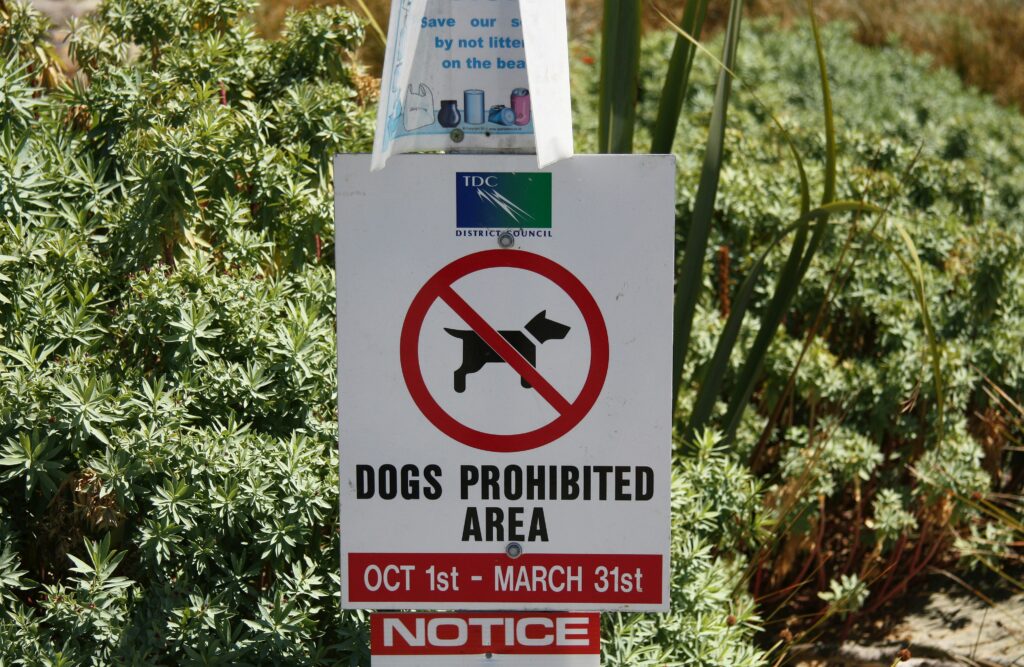Renting in Portugal with pets can often be complicated and stressful for many tenants. Finding a home that accepts animals isn’t always easy. Pet owners frequently face difficulty locating suitable rental properties. Many landlords across Portugal still hesitate to rent to tenants who have pets. This hesitation often arises from concerns about property damage, cleanliness, and noise disturbances.
These worries lead to fewer available rental options, making the search frustrating for pet owners. However, attitudes among landlords and property managers are beginning to shift positively. More property owners now understand the importance pets hold in people’s lives. They recognize responsible pet ownership and the benefits it brings.
Recent legal changes in Portugal have further strengthened the rights of pet owners. Animals are now recognized as sensitive beings deserving protection and care. These legal developments encourage greater respect and accommodation for pets in rental agreements.
Despite ongoing challenges, the gradual increase in renting with pets policies gives pet owners hope. Preparation and thorough research significantly reduce stress during the rental search. Websites and social media groups have also made it easier to find suitable pet-friendly listings. Let’s try to understand more details about renting with pets across Portugal.

Understanding Rental Rules for Pets in Portugal
Portuguese law clearly protects renters from discrimination in housing. According to Article 1067-A of the Civil Code, discrimination based on gender, race, ethnicity, language, origin, nationality, religion, beliefs, politics, sexual orientation, age, or disability is illegal. Rental listings cannot include any preferences or restrictions based on these protected categories.
Regarding pets, Portuguese laws increasingly recognize their rights and needs. Article 201-B of the Civil Code classifies animals as sensitive living beings deserving legal protection. This means pet owners can seek compensation for emotional suffering if their pets are seriously harmed.
However, landlords still retain the right to accept or refuse pets in their properties. As property owners, landlords can establish clear policies about pets. This makes renting in Portugal challenging for pet owners who must ensure their landlord accepts pets before finalizing agreements.
But if a rental contract does not mention pets, tenants may have grounds to negotiate or challenge any subsequent pet-related restrictions. It’s important to note that while landlords can set pet policies, they must still adhere to general anti-discrimination laws concerning tenants’ personal characteristics.
Portuguese law protects pet owners to some degree. Landlords cannot refuse renting with pets without good reason. Still, property owners have the final say in most cases. These laws mean renting in Portugal with pets is possible, but not always simple. Landlords can still set conditions to avoid property damage. For instance, landlords may request proof of vaccinations.
Common Issues for Renting With Pets
Higher Costs and Fewer Options
Many landlords fear property damage caused by animals, leading them to refuse pets outright. This can significantly limit rental options for pet owners. Additionally, some landlords charge higher deposits or increased rent as extra security against potential damages. These additional costs can make renting in Portugal financially challenging for pet owners.
Breed Limits and Strict Rules
Another frequent concern is landlord bias against certain pet breeds or sizes. Larger animals or specific breeds often face more rejection due to perceived risks. Pet owners may also encounter strict rules about noise or cleanliness, further complicating their rental experience. Regular inspections may be required to reassure landlords about the property’s condition.
Stressful Moves and Neighbor Concerns
Pet owners can face stress when needing to relocate quickly if pet-friendly rentals are scarce. The uncertainty about finding suitable accommodation can also cause anxiety. Moreover, renters with pets might experience tension or complaints from neighbors worried about noise or disturbances. Addressing these concerns proactively helps maintain good relationships within rental communities.

Pet-Friendly Rentals in Portugal
Finding pet-friendly homes while renting in Portugal can take time and effort. Popular websites like Idealista.pt make searching easier. They clearly mark which properties allow pets. Social media groups are also helpful places for pet owners. People regularly post advice and share available rental listings that welcome pets.
Cities such as Lisbon and Porto usually have more pet-friendly housing options available because they are modern urban centers. These cities typically attract property investors due to their higher rental yields.
Porto has gained global recognition as one of the top places to live and invest. According to Time Out, the city was ranked 10th on their list of the best cities in the world, highlighting its charm, food, and lifestyle.
Real estate trends in the city are also shifting. The Portugal News recently noted that many property owners in Porto are converting commercial buildings into homes to take advantage of growing rental demand.
Smaller towns in Portugal might have fewer homes open to renters with pets. Landlords in bigger cities often understand the needs of pet owners better. This understanding can lead to more flexible pet policies. Starting your search early gives you a better chance of finding the right place.
Landlord Rights and Pet Policies
When renting with pets in Portugal, landlords have the right to set clear rules about pets. They can choose whether to allow animals and specify any restrictions. This might include limiting pet sizes, breeds, or the number of pets permitted. Landlords often do this to avoid damage to their property or disturbances to neighbors.
These policies must be clearly stated in rental agreements from the start. Pet owners need to carefully read and agree to these rules before moving in. If landlords are concerned, they may request extra deposits or regular inspections. This ensures their property stays in good condition.
According to a recent VisaGuide.World ranking, Lisbon has been named the top European capital to visit in 2024. It is based on affordability, safety, weather, and public transport placing it above all other capitals in Europe this year. Therefore, landlords in Lisbon try to offer pet friendly apartments for foreigners.
Open communication between landlords and renters helps avoid misunderstandings. Tenants should discuss their pets’ behaviors and provide references if possible. Cooperation and flexibility from both sides can help create positive rental relationships. Understanding landlord rights and pet policies makes renting in Portugal smoother and less stressful for pet owners.

Pet Deposits and Extra Costs
When renting in Portugal with pets, landlords often ask tenants for pet deposits. This deposit is separate from the standard security deposit. It covers potential damage that pets might cause to the property. Usually, landlords refund the pet deposit at the end of the rental term if no damage has occurred. The amount varies but is often equal to one or two months’ rent.
Additionally, landlords sometimes charge higher monthly rent to tenants with pets. This extra cost compensates for increased risks like wear and tear or cleaning expenses. Not all landlords impose this fee, but pet owners should prepare for it when budgeting. Clear details about these fees should always appear in the rental agreement.
Extra costs might also include cleaning or pest-control fees when moving out. Some landlords require tenants to hire professional cleaning services to remove pet hair and odors. These charges can add to the overall expenses of renting in Portugal.
Pet owners need to discuss these costs openly with their landlords before signing any rental agreement. Clear communication ensures both sides understand expectations. Knowing these potential expenses in advance helps tenants manage their budgets better while renting in Portugal with pets.
Pet Responsibilities for Renters
Clean, Healthy, and Well-Behaved Pets
Keeping pets clean and healthy is crucial. Regular grooming and veterinary check-ups prevent health issues and odors. Tenants must ensure pets are well-trained to minimize noise and disturbances to neighbors. Training reduces problems like excessive barking or aggressive behavior.
Tidy Spaces Make a Big Difference
Maintaining cleanliness in the rental property is essential. Renters should quickly clean up any pet-related messes to avoid lasting stains or damage. Additionally, it’s important to handle pet waste properly, both indoors and outdoors, to keep communal areas tidy.
Know and Follow the Pet Rules
Renters need to follow property rules closely, respecting any specific pet-related restrictions set by landlords. For instance, adhering to guidelines about pet size, breed, or number of pets helps maintain a good relationship with landlords.
Talk Early, Talk Clearly with Landlords
Lastly, clear and timely communication with landlords about renting with pets shows responsibility and cooperation. By fulfilling these duties, pet owners make renting in Portugal smoother for everyone involved.

How can we assist you
Finding a home in Portugal with pets can be tricky—but that’s where Portugal Residency Advisors®, your trusted relocation and immigration partner, steps in. We specialize in helping pet owners find welcoming, pet-friendly rental properties across the country.
What makes us different is our tailored approach. We take into account your pet’s breed, size, and daily routine to match you with homes that truly fit your lifestyle. With our deep knowledge of Portugal’s rental market and strong relationships with pet-friendly landlords, we help you avoid delays, extra costs, and unnecessary stress.
With Portugal Residency Advisors by your side, renting in Portugal with pets is not just possible—it’s simple.
Frequently Asked Questions About Can pets stop you from renting in portugal
Can landlords legally refuse pets in Portugal?
Yes, landlords in Portugal can legally refuse pets. They must clearly state their pet policies in the rental contract to avoid confusion or disputes with potential renters later on.
Are pet deposits common when renting in Portugal?
Yes, pet deposits are common. Landlords usually require an extra deposit equal to one or two months’ rent. This covers potential damage or extra cleaning caused by pets in the rental property.
How do I find pet-friendly properties in Portugal easily?
To easily find pet-friendly homes, use specialized property websites like Idealista.pt. Also, social media groups and dedicated consultants like Portugal Residency Advisors significantly simplify your search for pet-friendly properties.
Can my landlord raise rent because of my pet?
Yes, landlords in Portugal may increase the rent slightly for pet owners. This helps cover potential extra costs, such as repairs or cleaning required due to pets living in the home.
What if my landlord suddenly changes pet rules?
If your landlord suddenly changes the pet policy, calmly discuss this with them first. Always check your signed rental agreement, as landlords cannot typically alter rules without your agreement and proper notice.
Are certain pets harder to rent in Portugal?
Yes, large pets or certain dog breeds considered high-risk might be more challenging to accommodate. Some landlords have breed or size restrictions clearly stated in their rental agreements or policies.
Do pet-friendly rentals usually cost more?
Pet-friendly rentals sometimes cost more due to higher deposits or additional cleaning fees. Budgeting a bit extra for pet-related expenses helps avoid surprises and ensures smoother rental experiences in Portugal.
How can I reassure landlords about my pet?
Providing veterinary records, previous landlord references, or training certificates helps reassure landlords. Introducing your pet beforehand or offering regular property inspections also demonstrates responsible pet ownership, easing landlords’ concerns.